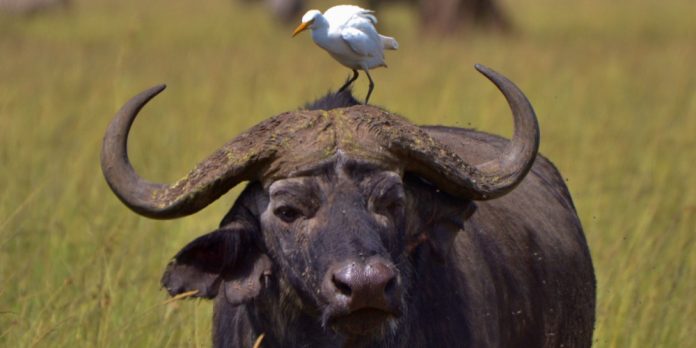The media and the sports betting world have not traditionally been aligned and the relationship has been somewhat tetchy at times. It was less than a year ago that the New York Times enacted a tirade of expose-style stories on the industry, calling into disrepute some of the actions of the industry when it comes to lobbying, advertising, and engagement with college students.
Yet, away from the controversy, sportsbooks and media publishers are quietly, and sometimes quite loudly, coming together for mutual benefits. The likes of FanDuel and DraftKings have forged content agreements with publishers such as the Associated Press and Meadowlark Media, for example.
Adam Fiske, the CEO of sports analytics, technology, and affiliate publisher Cipher Sports, sat down with SBC Americas to analyze the evolving relationship between the media and sportsbooks.
Sharing a piece of the pie
Fiske, as the lead of an affiliate firm, has skin in the game through Dimers.com. He was eager to point out that, ostensibly, this is a three-way partnership between the publishers, sportsbooks, and affiliates – sharing slices of the sports betting pie.
“The media publisher partners with the affiliate company, like us, and then the sportsbooks as well,” Fiske explained. “So we have a three-way deal and that’s why I think it’s a really interesting one. We’ve never really had it in the UK, or in Australia, or some of the more established markets early on, but the US has really taken this model and run with it.
“I think that one of the reasons is the publishers have built up great trust and authority with their readers, their communities but what they don’t have is any expertise when it comes to writing content around, you know, why you should join a book. I think what I found is I needed experts to come in and help them with that content.”
Educating players in new markets
With the authority that mainstream media publishers have over readers that they have built up over decades of trusted reporting, sportsbooks can leverage this to their advantage. Yet, in the five years since the repeal of PASPA and despite the billions of dollars that have been wagered on sports, Fiske argues that betting has yet to break into the mainstream as it has done in his home nation of Australia, for example.
He noted that, for a lot of Americans, betting has been a taboo due to its illegality, but added that regulated operators can help amplify their messaging and brand visibility via media publishers.
“I think that’s really important, especially around state launches, and we have Kentucky coming up very soon. People in Kentucky need to hear from their local news about this information otherwise, they’re only hearing about it from companies who are benefiting directly from them placing bets, suddenly it’s really important.”
For all the talk of leveraging local news, particularly during state launches in a bid to educate prospective new customers, it is no secret that the state of local journalism in the US is diminishing.
Research undertaken in 2022 revealed that around two local newspapers were closing per week, with around 2,500 titles closing since 2005. Revenue has been slashed and thousands of journalists have been laid off.
So, while the sportsbook advertising dollars will be particularly welcome from the local media’s perspective, what is the operator getting out of this relationship, given the declining readership?
For Fiske, this is where the affiliates can come in a help both parties; the publisher can benefit from increased traffic that the affiliate can help to drive, whilst the sportsbook can leverage the content to funnel new users into its ecosystem.
He again referred to the Kentucky example, given the launch is merely weeks away.
“The local news company is going to write content about it, and why shouldn’t they? It’s a newsworthy story. But they’re probably not going to be able to monetize it as well as they should be able to because of the size of the publication.
“But the Kentucky newspaper website is a lot more valuable to an affiliate or a sportsbook at the start of the market on September 28. We’ve seen the big spikes last year from Maryland, Ohio and Massachusetts so there’s a lot of excitement to team up and collaborate with other companies to drive new revenues together.”
Is this counter-intuitive?
For all of the talk of a symbiotic relationship between the press, affiliates and sportsbook, there is one glaring question: What about the conflicts of interest?
With an ever-increasingly competitive media landscape, are affiliates and media publishers not ostensibly competing against each other for the marketing dollars of the sportsbook?
Fiske explained: “There’s a huge role for affiliates. Firstly, the expertise in the content is important, we’re monitoring the market and writing about it every day. I think it becomes valuable for the media company because to write that would actually be very difficult the research you have to do in the resource to put into that.
“Secondly, in these media companies, you’ve got two things that a lot of affiliates don’t have one is great SEO authority. So how do we get this content into users’ hands who are searching for it by using their trusted brands, and who really like trusted brands through a long history of service?”
Fiske was assertive in his opinions that there is room for both affiliates and media in this relationship, and pointed to some of the biggest affiliates in the world who are picking up on this and enacting the model.
He concluded: “There is some competition, in a way that we’re both going at the same customer, but if we’re both incentivized to do that, we would rather have a small piece of a big pie than no pie at all. But Gambling.com, Better Collective, and Catena Media are highlighting the importance of these partnerships that drive volume.”















